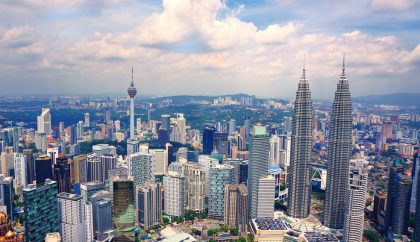Work Abroad in Malaysia

Why Malaysia
▸ Affordable education
▸ Multicultural environment
▸ Wide range of programs
▸ Globally recognized qualifications.
▸English language proficiency
▸Modern campuses and facilities
▸Research opportunities
▸Affordable living expenses
▸Warm climate and scenic beauty
▸Convenient transportation
FAQ
Job opportunities in Malaysia can be found through various channels, such as online job portals, company websites, recruitment agencies, networking, and attending job fairs.
Malaysia offers several work visa options, including the Employment Pass for skilled professionals, the Temporary Employment Pass for short-term employment, and the Professional Visit Pass for certain work-related activities.
Yes, Malaysia has certain skill shortages in various industries, making it possible for foreign workers with in-demand skills and qualifications to find job opportunities.
Depending on your profession or occupation, you may need to have your qualifications assessed and recognized by the relevant Malaysian authorities to work in certain regulated professions.
Yes, international students in Malaysia with a valid student visa can work part-time for a limited number of hours per week during their studies.
The process for obtaining a work visa in Malaysia involves the employer sponsoring the foreign worker. The employer needs to apply for the relevant work permit or pass on behalf of the employee through the Expatriate Services Division (ESD) or the Immigration Department.
Malaysia has labor laws that regulate working conditions, including minimum wages, maximum working hours, overtime pay, and workplace safety regulations.
Depending on the type of work visa you hold and your circumstances, you may be able to bring your family members to Malaysia as dependents. They may be eligible for dependent visas.
The language requirements for working in Malaysia depend on the nature of the job and the employer’s preferences. English is widely spoken and understood in many workplaces.
Malaysia offers various pathways to permanent residency, such as the Malaysia My Second Home (MM2H) program or the Long-Term Social Visit Pass (LTSVP) for spouses of Malaysian citizens.